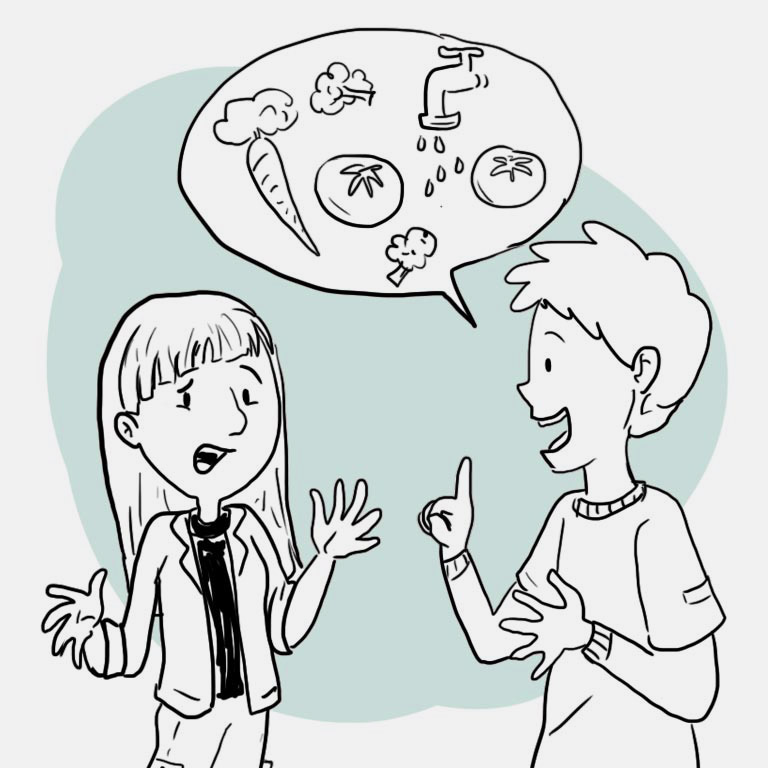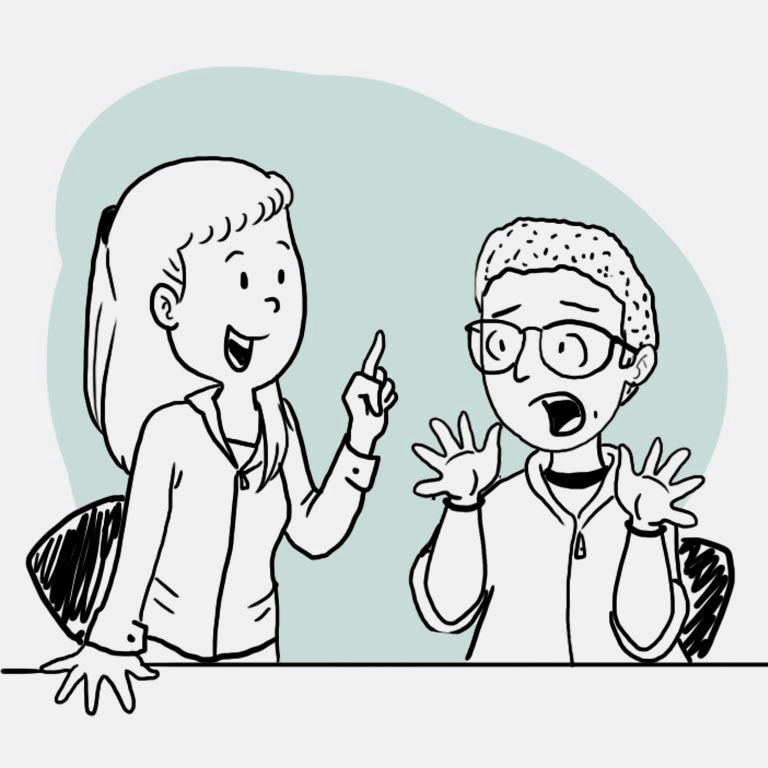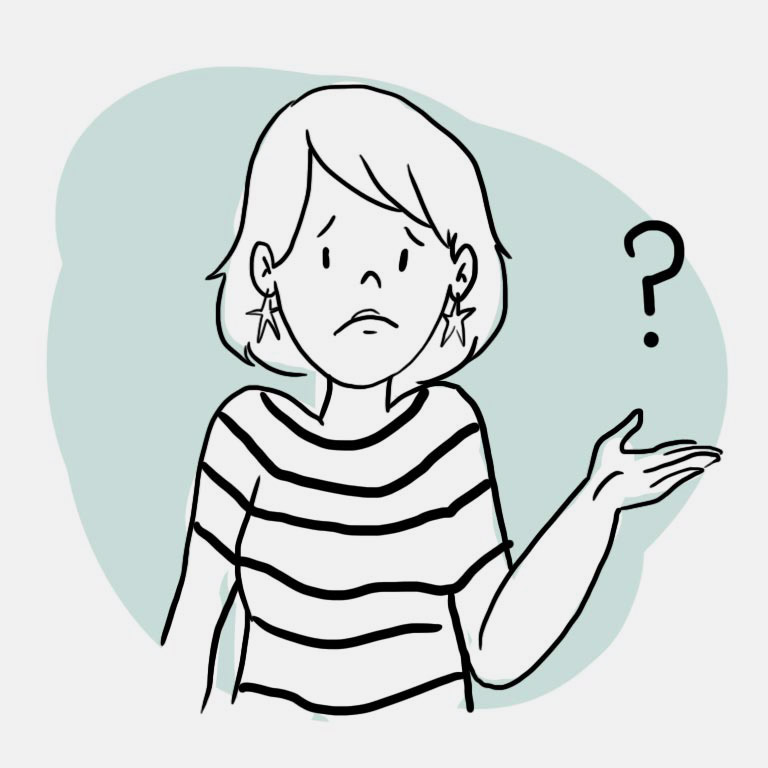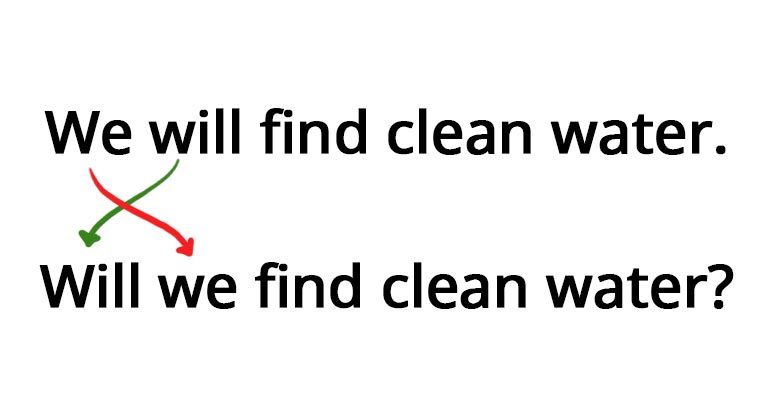Are you optimistic or pessimistic about our future? Read the conversation between Laura and George and pay attention to the ideas that express future predictions (will).
LAURA: Hey George, you look especially happy today? What’s going on?
GEORGE: You know me very well, Laura! As a matter of fact, I feel quite enthusiastic!
LAURA: Do you? Tell me more! Why do you feel that way?
GEORGE: Well, I’ve just heard a radio program about the future. They interviewed a scientist who said that we will have a great future in many aspects of life!
LAURA: Really? I don’t think so. I think that our problems will grow more and more!
GEORGE: Well, according to the expert on the radio, in some years we will develop vaccines for all the known illnesses we have today. That means we won’t need medicine anymore. Nobody will getsick!
LAURA: What about natural resources? I think we will run out of water and we won’t have enough food for everybody on the planet.
GEORGE: I don’t think so. The expert said that we will grow vegetables in labs, so famines won’t be a problem anymore.
LAURA: Will we find a way to have more clean water?
GEORGE: That’s for sure! In about 10 years, people will recycle rainwater.
LAURA: Will they use that water just to wash their cars or their house yards?
GEORGE: No, they won’t. They will use that water for everything. They will even drink it and use it to cook.
LAURA: I hope so. I’m really worried about our future. So, I hope you are right.
GEORGE: I am! You will see!

-
Predictions without evidence: Will

There are several situations in which we talk about the future. When we make predictions without evidence, we use “will”. Those predictions are based on what we think. They are personal opinions about the future. It is common to start these predictions with expressions like:
• I think that
• As far as I see,
• In my opinion,
• I’m sure that
• From my point of view
• I believe that
Look at the following examples:
• I think that we will have a great future in many aspects of life.
• From my point of view our problems will grow more and more!
• I believe that we will develop vaccines for all the known illnesses we have today.
As you can see in the previous examples to form a prediction we need:
Subject will Verb in simple form Contraction I will have I’ll have You will grow up You’ll grow up He will develop He’ll develop It will recycle it’ll recycle We will use We’ll use You will drink You’ll drink They will see They’ll see -
Negative predictions

For negative predictions we use “will not” or “won’t”. Look at the examples.
We won’t need medicine any more. We won’t have enough food for everybody. Famines won’t be a problem anymore. -
Ask questions

When we want to ask questions about the predictions somebody else makes, we invert the subject and will. Listen to the examples and pay attention to Intonation.

Will we find the way to have more clean water? Will they use rain water to drink? Will our planet be a better place to live in 100 years? -
Time expressions
When we make a prediction, it is common to use time expressions for the future. Read and listen to the following time expressions:
Tomorrow The day after tomorrow Next week Next Monday Next month Next year In a week In a month In a year
Examples:
• I think that in a week we will have a nice surprise.
• As far as I see, Laura won’t come next year.
• I believe that George and Marco will get married in a year.
Rewrite the following predictions about the future using contractions. Then, listen and repeat each prediction.
Read the following predictions and complete them either in affirmative or negative form, according to your personal point of view. Use the verbs in parenthesis.


